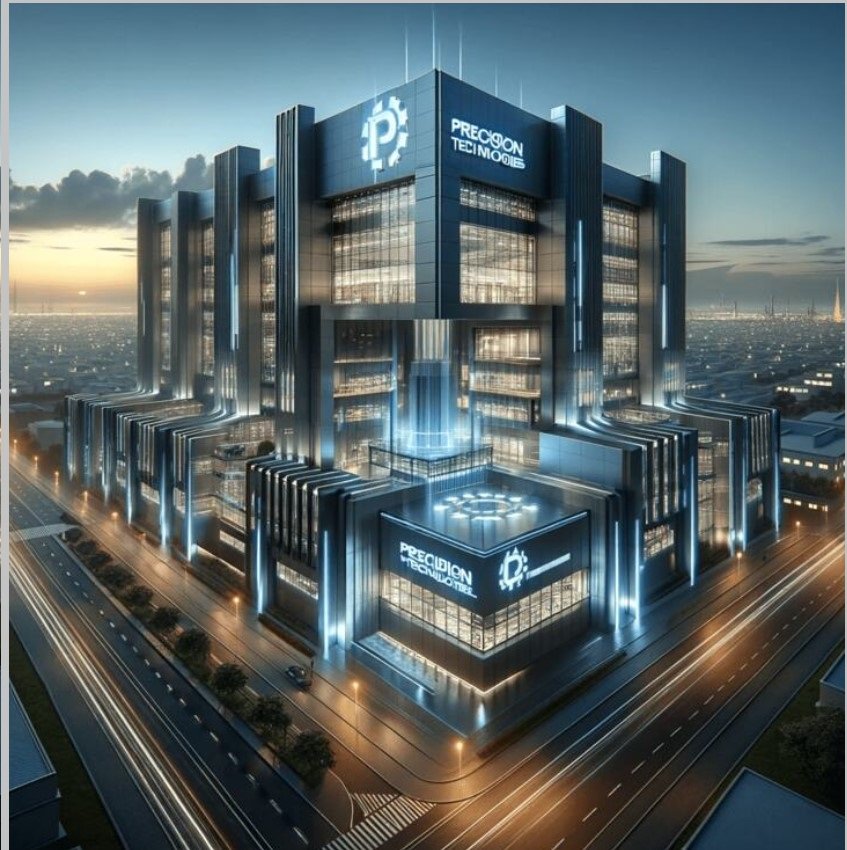The Future of Industry 4.0 with Precision Technologies International
In today’s fast-paced world, industries constantly seek new ways to improve efficiency, enhance innovation, and maintain competitiveness. Enter Precision Technologies International, a game-changer in cutting-edge technology, automation, and AI. By leveraging the power of precision technologies, industries are unlocking new possibilities and transforming how they operate in the age of Industry 4.0.
In this article, we will explore the evolution of precision technologies, how Precision Technologies International (PTI) is reshaping industries, and how businesses can adopt these innovations to stay ahead. We will also dive into the key trends and future implications of precision technologies for manufacturing, healthcare, and logistics sectors.
The Evolution of Precision Technologies
Precision technologies represent a culmination of automation, robotics, artificial intelligence (AI), and data analytics advancements. Historically, technology was used to improve labor-intensive tasks. However, precision technologies have evolved far beyond that. Today, they offer precise, accurate, and data-driven solutions that significantly reduce human error, streamline processes, and significantly save costs.
At the core of Precision Technologies International’s offerings is a commitment to ensuring accuracy in various fields, whether manufacturing automotive parts, conducting surgeries, or maintaining supply chains. Machine learning, predictive maintenance, and other AI-powered solutions allow businesses to make data-backed decisions in real-time.
How Precision Technologies International Is Revolutionizing Industries
As industries embrace Industry 4.0, Precision Technologies International has become a vital partner in optimizing systems, improving productivity, and creating more intelligent workflows. Here’s a breakdown of how PTI is transforming different sectors:
Manufacturing
Manufacturing has been one of the most significant beneficiaries of precision technologies. By integrating intelligent factories and automating various production processes, manufacturers can produce high-quality products with minimal waste and downtime. PTI’s solutions include robotic arms, machine learning algorithms for predictive maintenance, and sensor-driven analytics to improve quality control.
Example: A leading automotive company that adopted Precision Technologies International’s innovative manufacturing tools saw a 30% reduction in production defects and a 20% increase in output over six months (source: PTI Manufacturing Case Study).
Healthcare
In healthcare, precision technologies are reshaping patient care and surgical procedures. Robotic-assisted surgery, telemedicine, and AI diagnostics are some of the many innovations that improve the accuracy of medical treatments.
For instance, Precision Technologies International provides advanced imaging technologies and robotic systems for performing minimally invasive surgeries. These tools allow for greater precision during operations, reducing patient recovery time and improving overall outcomes.
Example: A hospital implemented PTI’s robotic surgical tools, resulting in a 50% reduction in patient recovery times and a 40% decrease in surgery-related complications (source: PTI Healthcare Innovations).
Logistics and Supply Chain Management
Precision Technologies International offers intelligent systems that streamline logistics operations by optimizing routes, tracking inventory levels, and predicting potential disruptions in the supply chain. These systems reduce bottlenecks, minimize delivery times, and promptly ensure customers receive orders.
The adoption of AI-driven route optimization has led logistics companies to reduce transportation costs by up to 25%, with real-time inventory management allowing companies to meet the increasing demand with greater efficiency.
Example: A global logistics company integrated PTI’s supply chain solutions and achieved a 25% increase in on-time deliveries and a 15% reduction in operational costs within the first year (source: PTI Logistics Solutions).
The Role of Artificial Intelligence in Precision Technologies
One of the biggest drivers of precision technologies is artificial intelligence (AI). AI allows machines to “learn” from vast amounts of data, making it easier to predict outcomes, identify patterns, and improve decision-making processes.
At Precision Technologies International, AI is embedded into every solution, from predictive maintenance tools in factories to AI-powered diagnostic systems in hospitals. AI’s ability to process large volumes of data in real-time allows companies to gain valuable insights that help them optimize operations and reduce costs.
Critical AI Applications in Precision Technologies:
- Predictive Maintenance: By analyzing machine data, AI can predict when equipment is likely to fail, allowing companies to perform maintenance before breakdowns occur.
- Quality Control: AI-powered cameras and sensors can detect even the most minor product defects, ensuring that only the highest quality items reach the market.
- Customer Service Automation: Chatbots and AI-driven customer service platforms are improving response times and accuracy in addressing customer concerns.
The Importance of Data in Precision Technologies
Data is the backbone of precision technologies, and Precision Technologies International utilizes advanced data analytics to drive its solutions. Data from sensors, machines, and systems is analyzed in real-time to provide actionable insights that improve decision-making.
The use of big data allows industries to identify inefficiencies, track trends, and make informed decisions. For example, a manufacturing plant can use data to identify potential issues before they affect production, or a healthcare provider can use patient data to offer personalized treatment plans.
By leveraging data-driven insights, companies can make better-informed decisions, reduce waste, and improve efficiency.
Future Trends in Precision Technologies
The future of precision technologies looks promising, with innovations on the horizon. Precision Technologies International is at the forefront of many of these advancements. Below are some emerging trends that will further revolutionize industries:
- 5G Integration
With the rollout of 5G networks, precision technologies will become even more interconnected. 5G will allow devices to communicate with each other faster and more efficiently, improving automation, data transmission, and remote operation capabilities.
- IoT and Edge Computing
The Internet of Things (IoT) and edge computing drive more real-time data collection and analysis. As industries adopt IoT devices, companies can track every aspect of their operations, from energy consumption to machine performance.
Example: An electronics manufacturer using PTI’s IoT solutions saw a 15% decrease in energy consumption due to real-time tracking and optimization of its systems (source: PTI IoT Integration).
- Advanced Robotics
Precision robotics will continue to evolve, offering higher accuracy, flexibility, and versatility. These robots will perform routine tasks and adapt to changing environments, learning from their surroundings to improve over time.
- Quantum Computing
While still in its early stages, quantum computing has the potential to revolutionize industries by solving complex problems that are impossible for classical computers to tackle. Precision Technologies International is already researching the application of quantum computing in sectors like pharmaceuticals, where it can help develop new drugs faster.
Final Thoughts: Embracing the Future with Precision Technologies International
Precision technologies are more than just a trend; they are the future of industries’ operations. Precision Technologies International is leading the charge by offering innovative solutions that combine AI, robotics, and data analytics to optimize processes, reduce costs, and improve overall efficiency.
Adopting precision technologies is no longer optional—it’s necessary for businesses looking to stay competitive. Whether you’re in manufacturing, healthcare, or logistics, the benefits of these technologies are apparent.
Questions & Answers:
Q1: What industries can benefit from Precision Technologies International’s solutions?
A1: Many industries can benefit, including manufacturing, healthcare, logistics, and retail. Precision technologies optimize processes across sectors by improving accuracy, reducing costs, and enhancing efficiency.
Q2: How does AI affect Precision Technologies International’s offerings?
A2: AI is critical, allowing machines to learn from data and make real-time decisions. This is used in predictive maintenance, quality control, and customer service automation, among other applications.
Q3: How can businesses get started with Precision Technologies International?
A3: Businesses can begin by assessing their current operations and identifying areas where precision technologies can improve efficiency. Consulting with PTI can help create a tailored solution that addresses specific needs.



